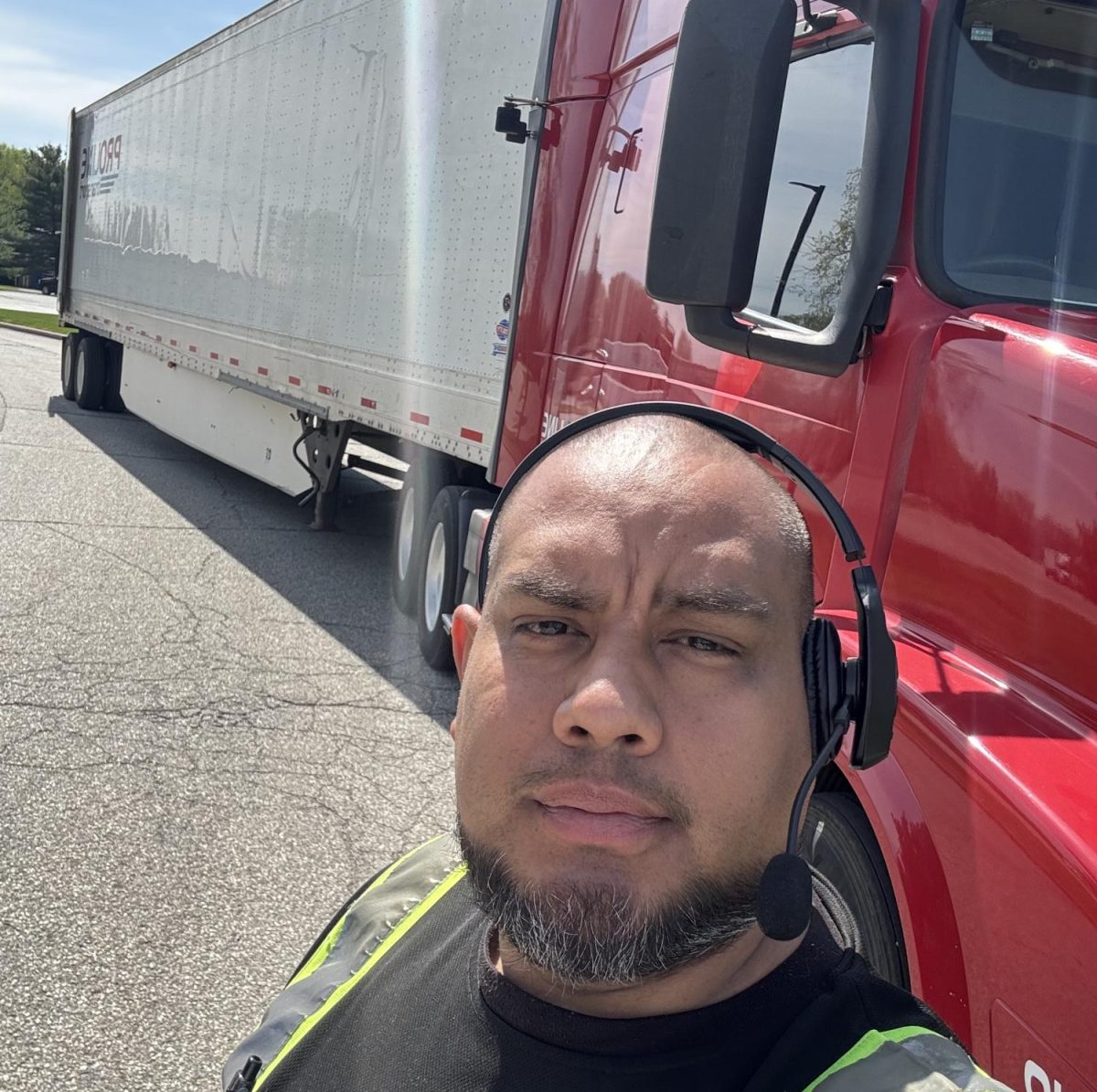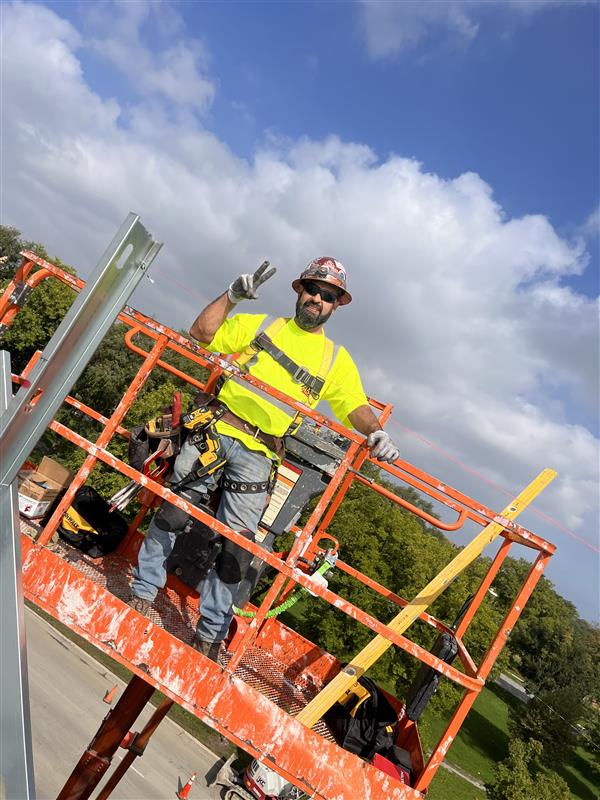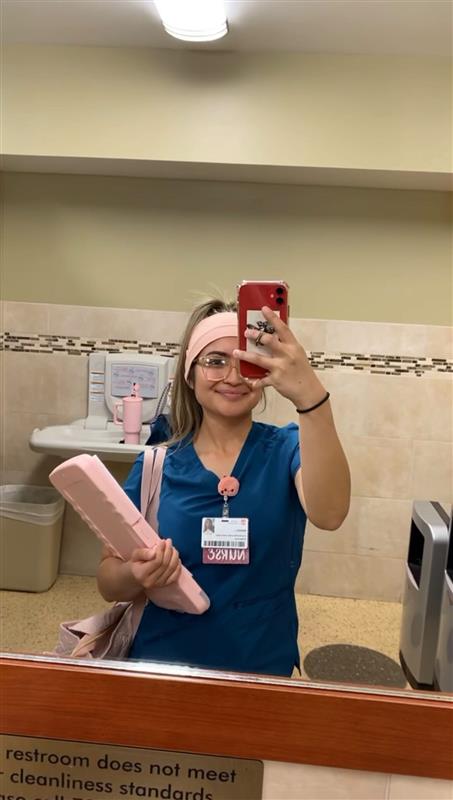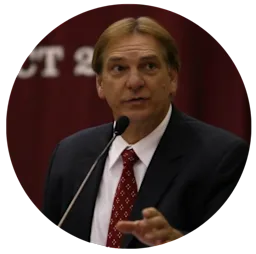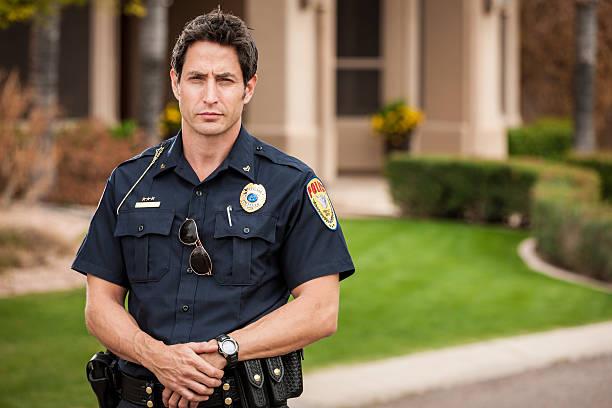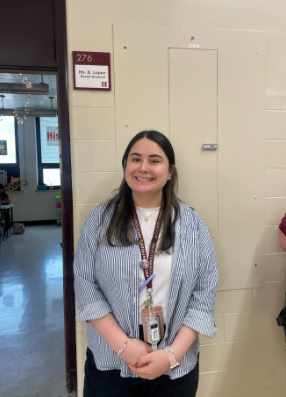
I had the honor of interviewing Ms. Brenda Lopez, a civics teacher at Morton East High School. Ms. Lopez graduated from Morton East in 2015. She later earned a bachelor’s degree in the Teaching of History from UIC in 2019 and completed a Master of Arts in Education at Dominican University in River Forest in 2021. Ms. Lopez gives her very best every day—she’s deeply committed to her students’ growth and success. Her dedication shows not just in civics, but in the way she motivates, encourages curiosity, and leads by example.
Q: What inspired you to become a teacher?
A: I truly love working with young people. There are many who don’t have the patience or who simply write off teenagers as being immature, but I love seeing their growth. Every day is different, but I wouldn’t have it any other way.
Q: What’s one lesson you’ve learned from your students?
A: It’s okay to ask for help. I tell students all the time that it’s okay to admit when you don’t know something and need someone’s assistance—but I need to take that advice, too. What kind of person would I be if I didn’t show my students what I want them to do? I’ve gotten better at advocating for myself and my needs, but this is something I’ve learned alongside my students.
Q: If you weren’t a teacher, what job would you have?
A: I always go back and forth, but I think I’d either be a mail carrier or a massage therapist. Very different, I know—but they’re both service jobs, and teaching is also a service job. I also wouldn’t mind working in law as a paralegal, especially after hearing my boyfriend talk about his experience working as an attorney.
Q: How do you keep students motivated when they’re not interested?
A: This is tough, and I’m sure if you asked any other teacher, they’d tell you the same. I do my best to have a connection with the student(s), see what motivates them in other areas, and try to find a way to reach them. But honestly—and this is a tough lesson for many—you can’t help someone who does not want to be helped. If they are not on that path, we cannot change their lives around single-handedly. I do my best to connect my class to the real world—since all of our lessons are for life outside of school (like how the government works, how to file taxes, how to vote, etc.). Still, I have to remember that some people don’t really want to learn about that, so I focus on those who are willing to challenge themselves, as sad as that can be.
Q: What do you think makes a person successful?
A: I think there are a couple of things, but if I had to narrow it down to three qualities, I’d say vulnerability, accountability, and drive. I don’t think it’s necessarily about being the smartest—I think it’s about who is willing to admit they made a mistake, learn from it, and commit to improving. That, to me, is the most impressive and shows potential for future success.
Q: How do you balance your work and personal life?
A: It’s taken a lot of time! I’ve learned that while I have to show my personality and be my authentic self in the classroom and with my students, that doesn’t mean being a teacher is my entire personality.
Q: What advice would you give someone who wants to become a teacher?
A: Make sure you’re going into teaching for the right reasons. For example, if you love history and that’s all you want your career to focus on, you’re in the wrong profession. Your priority should be working with students. While it’s important to focus on their academic growth, their social-emotional growth and connection to school outweigh that, in my opinion. They’ll forget your lessons—but they’ll never forget how you treated them.
Q: What do you love most about teaching?
A: Seeing when something “clicks” for my students. I swear, ask any educator and they’ll know what I’m talking about. When I see my kids literally make the connections in their heads and apply content to their real lives—or when it finally makes sense—it makes everything I’ve done worth it. When they tell me they voted or applied for a credit card, that’s awesome too!
Q: If you could tell your younger self something, what would it be?
A: Start therapy earlier. I learned so much about myself and emotional regulation that I feel I can work better with others because of it. The more I worked on myself, the better person I became—which made me a better teacher. I learned my triggers, how to set boundaries, how to cope, and how to have difficult conversations—all of which are part of my job. Going to therapy not only saved my life, but taught me how to be a better person and teacher.
Q: What do you think is the most important quality a teacher should have?
A: Emotional awareness and intelligence. It’s important for teachers to have this skill in order to understand others. For example, we need to know how not to take things personally or how to take accountability when we make mistakes. Saying “I’m sorry” to a student is not a sign of weakness—it’s vulnerability. It models for students what to do. Saying, “I’m having a bad day, but I’m showing you how one can keep going while still having a bad day,” is powerful too. These are examples of how we can show up for our students beyond academics. Our field is mainly about working with others—but we have to know how to manage ourselves before we can help others.


